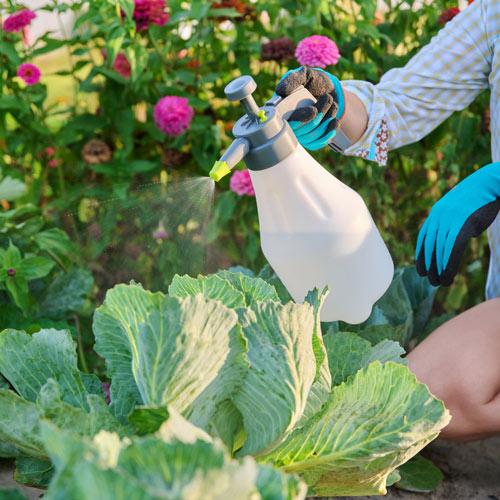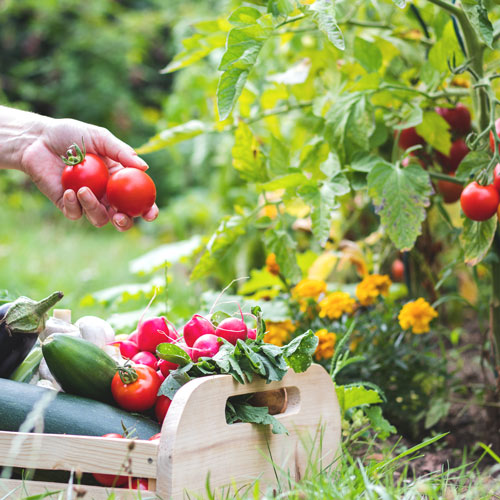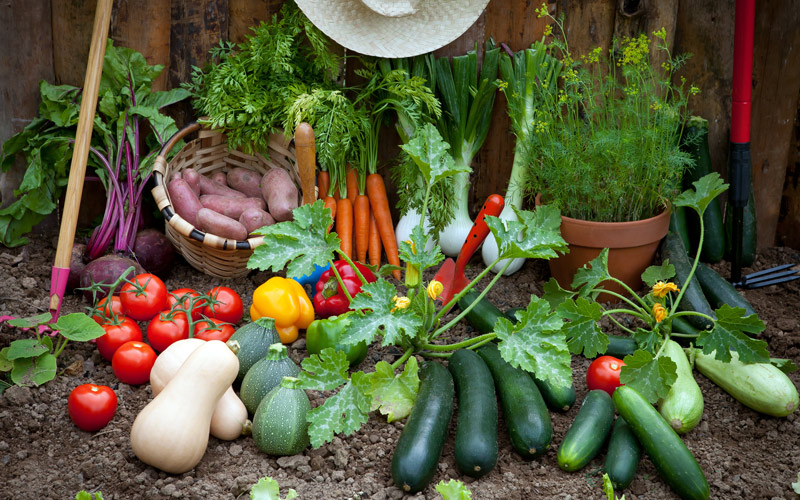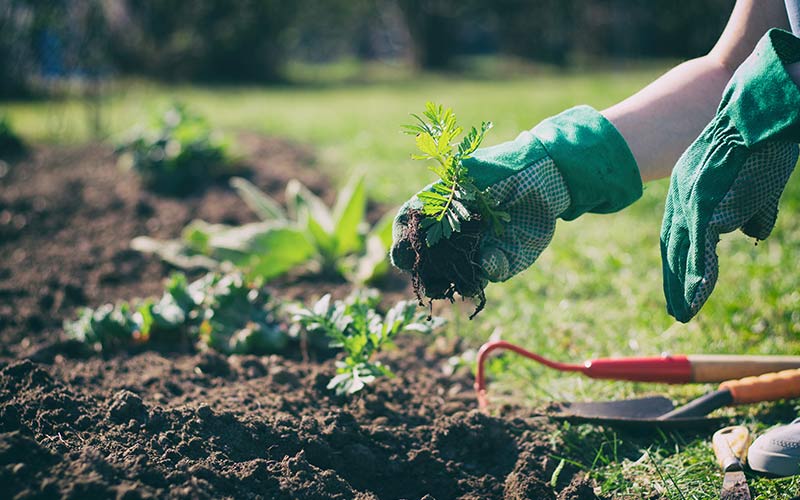A community garden brings neighbors together, encourages exercise, and adds value to the neighborhood. But it can be frustrating when you don’t have a green thumb. Luckily, there are some plants that are easier to grow than others.
Best Vegetables for Your Community Garden
Everybody wants to plant fruits, vegetables, and herbs in their garden, but some plants are difficult to grow and maintain. If you’re looking for the best plants for your HOA garden, you’ve come to the right place.
1. Basil
Basil is very delicious and works well with countless vegetables and meats. So, if you want to make some pesto with freshly grown basil, it should definitely be on your list.
Basil is easy to grow and maintain. Once you plant it, it grows extremely quickly. In fact, after planting the seed, you only have to wait about 3 to 4 weeks before you can start harvesting. As such, it’s a great herb to plant for beginners.
2. Cabbage
Cabbage is certainly one of the best plants for spring. It’s a versatile vegetable that you can stir fry, bake, steam, or braise. Stick it in a stew or turn it into sauerkraut. You can even eat it raw.
It’s a great plant for beginner gardeners, too. Cabbage isn’t fussy, so you can grow it easily without paying too much attention.

3. Carrots
Carrots are nutritious vegetables packed with vitamin A and beta-carotene. Like cabbage, they’re extremely versatile in the kitchen. You can cook them or eat them raw with some hummus.
There are lots of varieties to choose from as well. You can grow long and multicolored carrots or baby carrots. They’re easy to grow, so you won’t spend most of your time scratching your head and sighing in frustration.
4. Eggplant
If you’re in the South, eggplants are definitely a good choice. They come in different varieties and colors. You’re probably familiar with the bright and darker purple eggplants. But did you know that eggplants also come in yellow and white tones?
While they’re easier grown in southern areas, you can also have some success growing them in cooler states. If you’ve never planted them before, try the dwarf eggplants that you can harvest at only 3-4 inches long.
5. Garlic
If you want to take communal gardening to the next level, try planting a kitchen staple like garlic. Garlic is used in many dishes, and you can also find it in many vegetable gardens. You can grow it as green garlic or wait for it to produce bulbs. It’s also significantly easy to grow – all you need is good soil, sufficient moisture, and time.
6. Kale
Kale has earned quite a reputation for being a healthy superfood, but did you know it’s also easy to grow in your community garden? There are so many varieties of kale, all of which are fairly low maintenance. You can choose from kale that grows to a shrub to kale that can even grow in a small space.
7. Onions
Just like garlic, onions are a kitchen staple. You need it for almost every dish. If you grow them in your community garden, you’ll have a solid crop that lasts a while.
Onions are easy to grow and maintain. They don’t need a lot of care and attention. All you really have to do is plant them, water them, fertilize them, and weed them. When the stems dry out, that means they’re ready to be harvested.
8. Strawberries
Strawberries are delicious and juicy – perfect for the spring and summer. If you want to include them in your community gardening repertoire, you’re in for a treat. They’re easy to grow and don’t take up too much space. They also come in several varieties, so you can have strawberries all throughout summer and autumn if you plant a lot.
9. Tomatoes
There’s simply nothing like the taste of tomatoes right off the vine. The good thing about tomatoes is that it doesn’t take much to grow and maintain them. They’re also very productive, though they require warmth to really get going.

10. Winter Squash
One of the easiest vegetables you can grow is winter squash. You just plant the seeds and leave them to grow without much attention. Some varieties even only need a little water and fertilizer. Even though they’re called winter squash, they still make for one of the best plants to grow in spring.
Best Flowers for Your Community Garden
Fruits and vegetables are great and all, but not everyone’s into them. Sometimes, you just want something pretty to look at. In that case, take your pick from one of these gorgeous flowers to plant in the spring.
11. Primrose
Primrose is a flower that’s beautiful and keeps on giving. It’s one of those plants you can grow over and over again. When they grow, you can divide the clumps and replant them for a lush display. Plus, they’re robust and adaptable.
12. Tulips
It’s impossible to talk about spring flowers without mentioning tulips. These flowers come in an assortment of colors, sizes, and shapes. There are vibrant and colorful tulips, and there are white tulips that scream elegance. And they love the sun, too!
13. Zinnia
Zinnia flowers grow extremely quickly and are very productive, so you don’t have to wait a long time to see the fruits of your labor. They come in many bright colors and can really liven up a dull garden. They also last a long time, so expect to see them in bloom until the autumn season.
14. Daffodils
Daffodils are sprightly flowers that bloom in even the most severe conditions, making them great for beginner gardeners. While they’re known for their yellow color, they can also come in white and soft pink. They also come in various heights, so you can choose the one you like best for your garden’s aesthetics.
15. Hyacinth
You don’t really hear about or see hyacinths anymore because they’ve gotten a reputation for being old-fashioned. But their beauty and fragrance should definitely earn them a spot back on the popular list. There are purple, pink, and white hyacinths – and all of them thrive in the sunlight. Plus, they’re some of the easiest flowers you can grow.
Take Your Pick

Spring brings a lot of joy and beauty to many communities. If your HOA has a community garden, you might struggle to decide which plants to grow. After all, some are very high maintenance. Fortunately, there are lots of plants that don’t take much to grow and maintain.
You Can Also Read These:
- Practice Companion Planting For A Healthier And Thriving Garden
- Organic Mulch vs Inorganic Mulch: What’s Best For Your Garden?
- Backyard Vegetable Garden For Beginners




